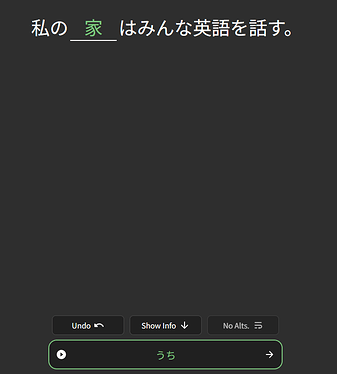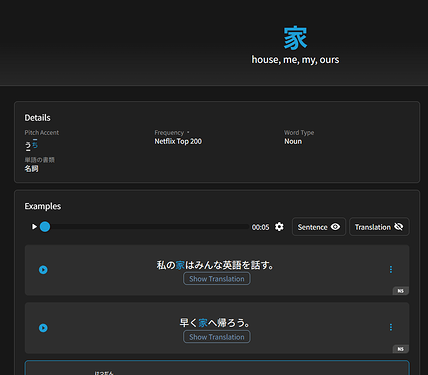Sorry if this is dumb or has been asked before, but why is house in this written as うち instead of いえ?
this is in the reviews of the lesson I just did before they go into your “review stack”
I know it says うち in the pitch accent part but I thought pitch accent was just the pitch you say the reading, not a completely different reading? All the sample sentences pronounce it as いえ so its very confusing to me.
Is it an alternate pronunciation? I can see from typing it that its a valid way to “type” the kanji with my IME.
thanks in advance!





